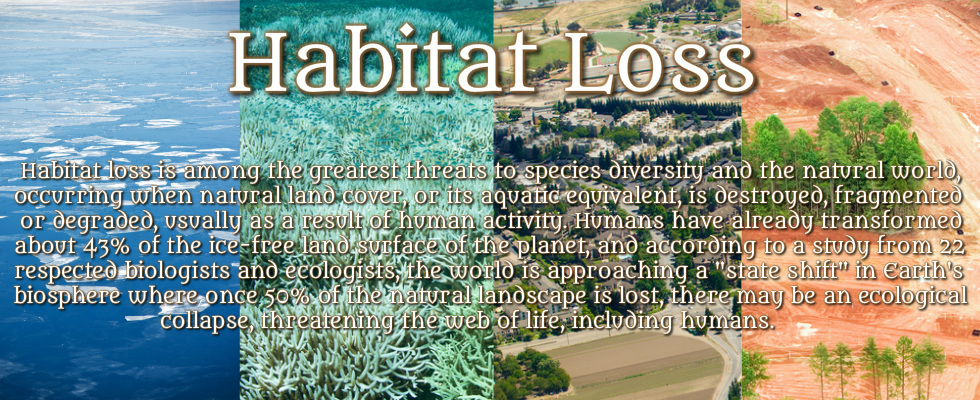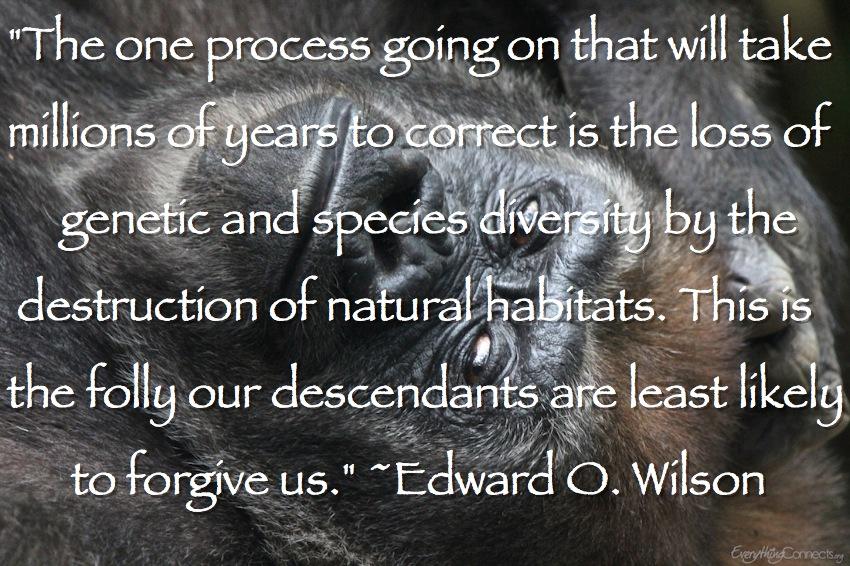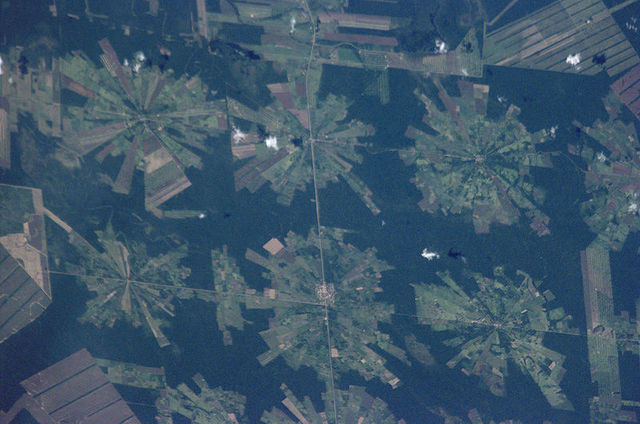
Habitat Loss
Habitat loss is among the greatest threats to species diversity and the natural world, occurring when natural land cover, or its aquatic equivalent, is destroyed, fragmented or degraded, usually as a result of human activity. Humans have alreadyof the planet, and according to a
study
from 22 respected biologists and ecologists, the world is approaching a "state shift" in Earth's biosphere where once 50% of the natural landscape is lost, there may be an ecological collapse, threatening the web of life, including humans
(see also). The main causes for habitat loss are
logging forests,
oil
and
gas
exploration and development, draining swamps and coastal habitats for development, road construction, cattle ranching, mining, pipelines, damming rivers and draining them for irrigation, and
urban sprawl, which have degraded and destroyed critical habitats throughout the world. When an ecosystem has been dramatically altered or destroyed by human activities, it may no longer be able to provide the fundamentals for species to survive or the food, water, cover, and places to raise their young. Every day there are fewer places left that wildlife can call home.
Protecting and preserving the habitats that wildlife need in order to survive
runs parallel to protecting the future of humanity. We depend directly on natural habitats for
essential, irreplaceable ecosystem services
and on key species,
such as
pollinators, for countless needs and benefits, but indirectly on all other species for the simple reason that
everything connects
. Replacing natural habitats with unnatural habitats that depend on natural habitats, yet destroy or degrade them at alarming rates - faster than they can replenish themselves - is a recipe for disaster. A recipe that can only continue to brew for so long.
Learn more.
"To waste, to destroy, our natural resources, to skin and exhaust the land instead of using it so as to increase its usefulness, will result in undermining in the days of our children the very prosperity which we ought by right to hand down to them." ~ Theodore Roosevelt
"The current massive degradation of habitat and extinction of species is taking place on a catastrophically short timescale, and their effects will fundamentally reset the future evolution of the planet's biota." ~ National Academy of Sciences
Urban Sprawl Urban sprawl refers to the expansion of poorly planned, low-density, auto-dependent development, which spreads out over large amounts of land, putting long distances between homes, stores, and work and creating a high segregation between residential and commercial uses with harmful impacts on the people living in these areas and the ecosystems and wildlife that have been displaced.
"Habitat loss poses the greatest threat to species. The world's forests, swamps, plains, lakes, and other habitats continue to disappear as they are harvested for human consumption and cleared to make way for agriculture, housing, roads, pipelines and the other hallmarks of industrial development. Without a strong plan to create terrestrial and marine protected areas important ecological habitats will continue to be lost." ~ WWF
| |
Learn More About the Causes and Effects of Habitat Loss
Waste
Habitat loss
has been identified as being the main threat to 85% of
Red List
species classified as "Threatened" or "Endangered" by the
International Union for Conservation of Nature (IUCN).
Learn more.







